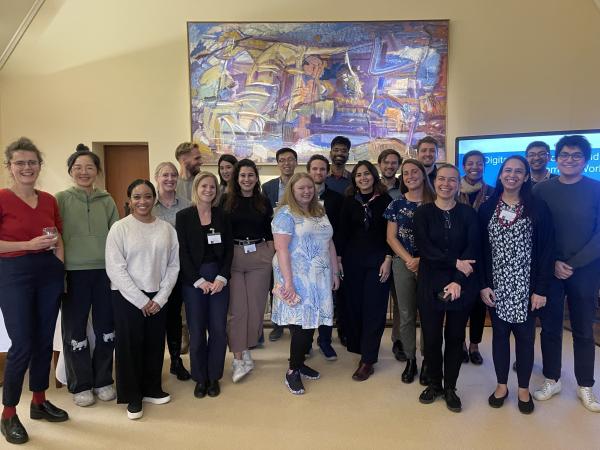Technologies numériques et développement durableOxford, Royaume-Uni, 30 septembre - 1er octobre 2024
Sous l'égide du Comité sur la démographie numérique et computationnelle de l’UIESP, l’équipe Digital Gender Gaps de l’Université d’Oxford a eu le plaisir d’organiser un atelier de deux jours les 30 septembre et 1er octobre 2024 sur le thème « Technologies numériques et développement durable ».
L’atelier s’est tenu au Collège Nuffield, à Oxford, et a réuni un panel de chercheurs interdisciplinaires issus d’institutions académiques—notamment UC Berkeley, l’Université de Bielefeld, Carnegie Mellon University Africa, l’Université d’Oxford, Johns Hopkins University, Boston University, Rutgers University, University of Toronto, Lahore University of Management Sciences, University of Washington, University of Cape Town, William & Mary, SUPSI, et Saarland University—et d’organisations telles qu’ICT Africa, Meta, GSMA, BBC Media Action, l'UNFPA et la Fondation Bill & Melinda Gates.

Les présentations ont abordé différents types de technologies numériques telles que les téléphones mobiles, les technologies internet, les médias sociaux, les applications et l’IA générative ainsi que leurs impacts. Le rôle des technologies numériques dans la création de nouveaux types de données pour les mesures sociales et démographiques, y compris les données web, géospatiales et des médias sociaux, a également été un thème central. En dehors des présentations de recherche formelles, les participants à la conférence ont discuté de leurs intérêts de recherche communs, des défis méthodologiques partagés, et des domaines de collaboration future.
L’équipe Digital Gender Gaps remercie la Fondation Bill et Melinda Gates (INV-045370) et le Nuffield College Academic Fund pour le financement de l’atelier. Nous prévoyons d’organiser cet atelier à nouveau à l’automne 2025.
|
